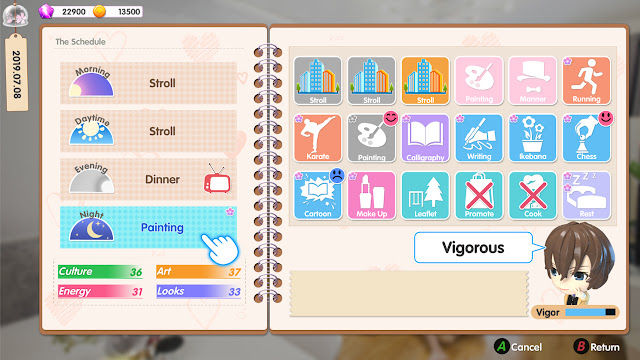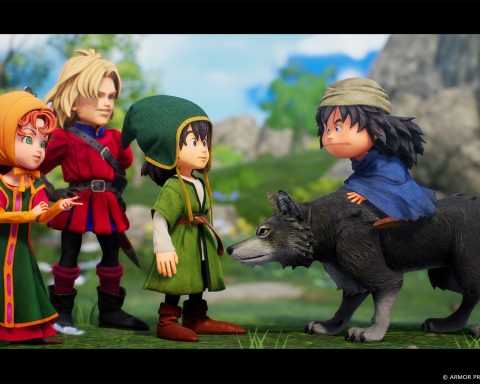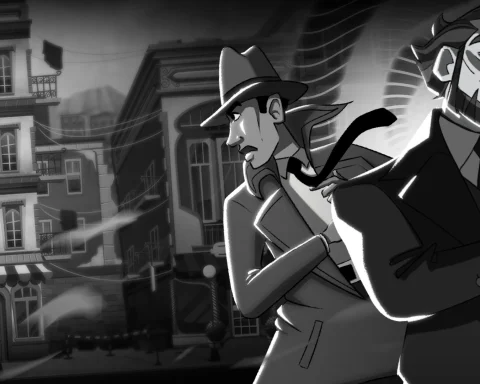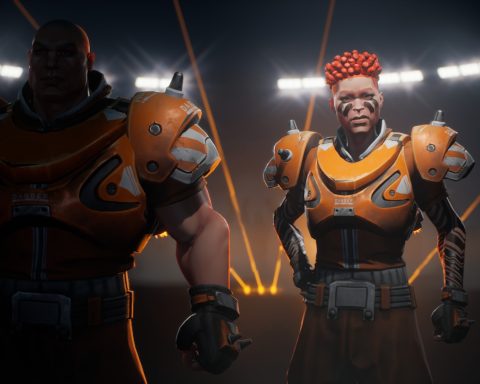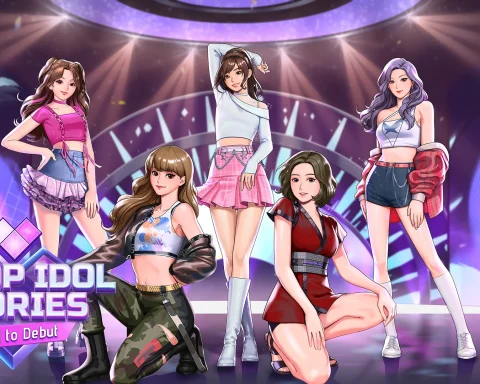Review by Matt S.
I first visited Japan around 11 years ago, and one of the things I remember most vividly from the trip was going along to an art exhibition for interactive and electronic art. I remember because it was being held in one of Tokyo’s most prestigious galleries and the idea of something that new being given the same artistic weighting as classical paintings and exhibitions is… less than common here in Australia. Given the theme of the exhibition, there was naturally a section that was dedicated to video games, and that was where I first saw – and played – the original Love Plus on the Nintendo DS. Based on the reputation it had in the west I was curious as to why it was there, but as it turned out, it was very much a game that belongs in an art gallery. Love Plus is a gorgeous, artful example of how person-to-person interactivity can be explored in a meaningful way within a video game.
It was also (as far as I can remember) my first exposure to a dating game; a type of simulator where you need to focus on setting your protagonist a daily schedule so that you can build a group of statistics to the point that one of the girls that he’s getting to know in the background falls in love with him. This genre features simple enough gameplay – it really is just a matter of setting activities in such a way that all the statistics increase evenly – but when the characters that you’re interacting with are well-developed and nuanced, it’s also a genre ripe for gorgeous storytelling.
Sadly, and to my great frustration, Konami has never localised Love Plus, nor its sequel, and the new mobile game (which, for the record, draws hours-long lines at Tokyo Game Show year after year) shows no signs of getting a localisation either. Instead, we get Summer Sweetheart. And… no. This game does not belong in an art gallery. The bins outside the gallery, perhaps. But not inside any gallery’s walls.
And the say games aren’t art #NintendoSwitch pic.twitter.com/E0HIBrXEtl— DDNet: We cover Japan 🇯🇵 (@DigitallyDownld) October 20, 2019
The big sales pitch of Summer Sweetheart is that the characters are all “performed” by real people. So, instead of interacting with an anime girl, you get to flirt it up with static pictures of real girls. And, sometimes, you’ll get a video clip of one of those girls as a bonus. The problem is that this is also the most singularly unintelligent aesthetic decision that a game developer can make. One of the reasons that anime games and dating simulators are so entertaining is that they exist in a hyper-real space. That is to say, the girls aren’t real. They’re clearly not real. They’re exaggerated to some extreme degrees to have huge eyes, perfect waist-hip proportions, inhumanely long legs and boobs that don’t need to worry about gravity.
They’re “better” than the real thing, in other words, and this supernormal stimulus effect in turn allows players to distance themselves from looking at events and characterisation as reality. The little quirks that anime girls have therefore becomes cute and endearing. Being lusty as all hell comes across as more amusing than lecherous (or at least, it should be, if the writing is done right). Anime characters are no more “real” than the characters in a book, so while we might be emotionally attached to them (and you all know just how emotionally attached I am to Hatsune Miku), there’s still that clear line between the real world and the unreal which makes those interactions – no matter how extreme – palatable.
By contrast, in using real people, Summer Sweetheart feels very uncomfortable to play. Part of the problem is that the characters behave like they are anime character, and watching a real human woman dress up as a cat and end every sentence in “nya” (Japanese cat-meow sound), stops being cute very, very quickly. The other problem is that Summer Sweetheart itself also plays out very much like anime, but those upskirting and down-shirt shots that are such a part of fanservicey anime are considerably less entertaining in the real world. There is plenty of examples of real-world “fan service” that are just great – yes, there are certain websites that I use, I have a couple of gravure photo books. But it’s all about context, and applying the very specific kind of anime fan service to live models is creepy. There’s just no other word for it.
Even pushing past that, there’s the more practical issue that supernormal stimulus, by definition, is more perfect than the real thing, and as it is, the developer of Summer Sweetheart didn’t exactly have the budget to hire A-list models and idols. It’s not to say that the women that are in the game are by any means unattractive (actually they’re all quite beautiful), but without the gravitas of being major celebrities, the cast lack the characteristics that would have given them something to compete with the supernormal stimulant anime character. So why, as a game developer, would you put yourself at a disadvantage like that?
Being generous and assuming that the idea behind the real human characters was to enable the developers to write a story in which players can develop a “real” connection with the women that they’re trying to woo, Summer Sweetheart still faces issues. In this case, the localisation. It’s so bad that I had absolutely no idea what the characters were trying to say to me at times, and because what the characters were “saying” in no way resembled how a human would actually talk, any illusion that the characters would be believable as people was instantly shattered. It also meant that none of the characters had an distinct personality of their own, since most of the time they were talking degrees of gibberish. Not a good result for a game where you’re meant to find your “favourites.”
To wrap up the issues with this deeply flawed game, as far as aesthetics go, your own character is represented as a cute little chibi fellow. He pops up whenever you give him a job to do – so for example if you decide to practice your painting to improve your art ability, you’ll see a little animation of chibi-guy painting at an easel. Take a job handing out pamphlets, and you’ll see a short animation of chibi-guy dressed up in a dinosaur suit. It’s cute enough in isolation, but given that everything else in the game is comprised of photo-realism, the little chibi guy stands out as a completely out-of-place aesthetic decision that clashes with everything else. It’s not a pleasant look.
Summer Sweetheart plays fine for what it is. There are four different statistics to track, and you need to develop one of the statistics to a certain level every week or so to meet an objective. At the same time you need to wander into town from time to time to meet one of ten women, flirt with them a bit, and raise their affection towards you. The handful of minigames that are in there are reminiscent of Flash games from the turn of the century, but they work well enough, and the systems are balanced just well enough that you do need to vary the schedule up and manage elements like fatigue, the need to earn cash, and so on.
It doesn’t really matter how well Summer Sweetheart actually plays, though, because it’s such an poor concept, and its executed so clumsily, that it’s just not worth touching. There’s so many better fanservicey games out there, and if you absolutely have to have real people in your fan service… you’re so much better off becoming a fan of a Japanese or Korean idol group, loading up with gravure books, or signing up for certain adult websites. You could even just play a Yakuza title for the real-world adult video stars those games feature in the side stories in that series. You don’t need an entire game focused around the occasional short (and poorly produced) clip of a real woman flashing her boobs at you and then trying to imitate a cat.
– Matt S.
Editor-in-Chief
Find me on Twitter: @digitallydownld
Please help keep DDNet running:
Become a Patreon!



